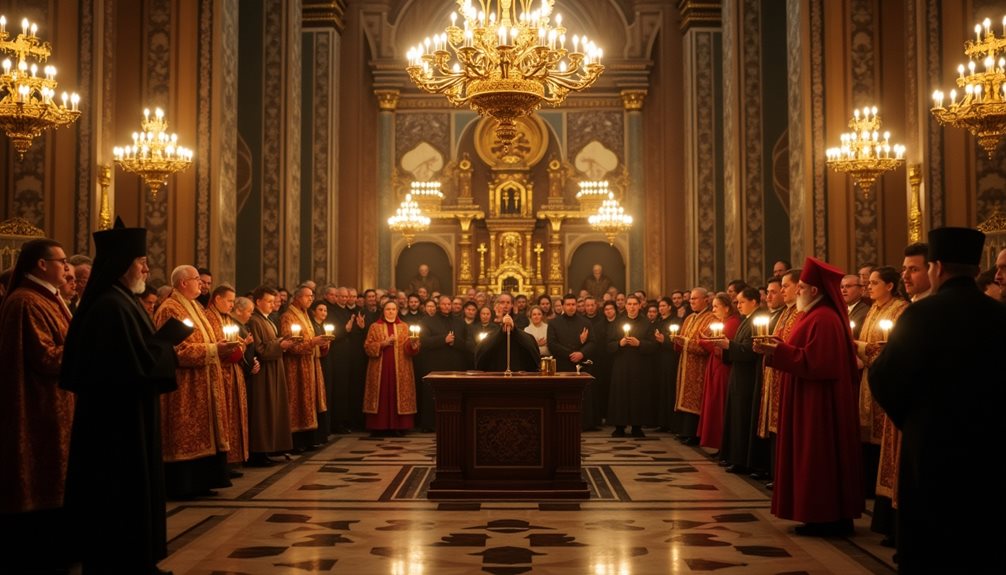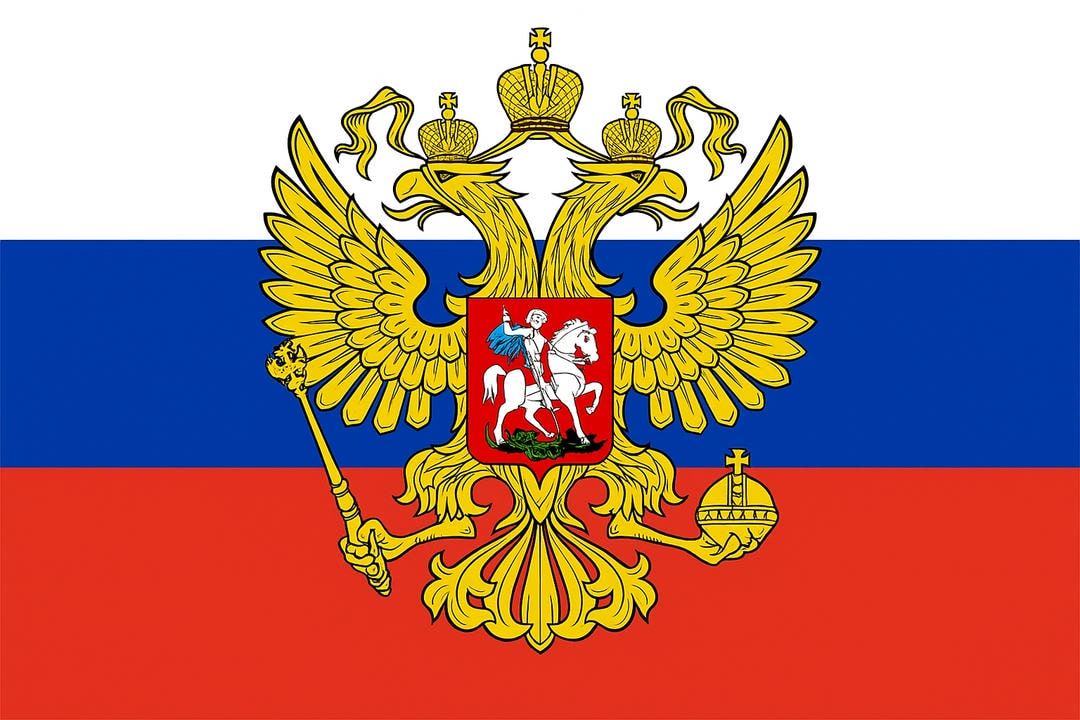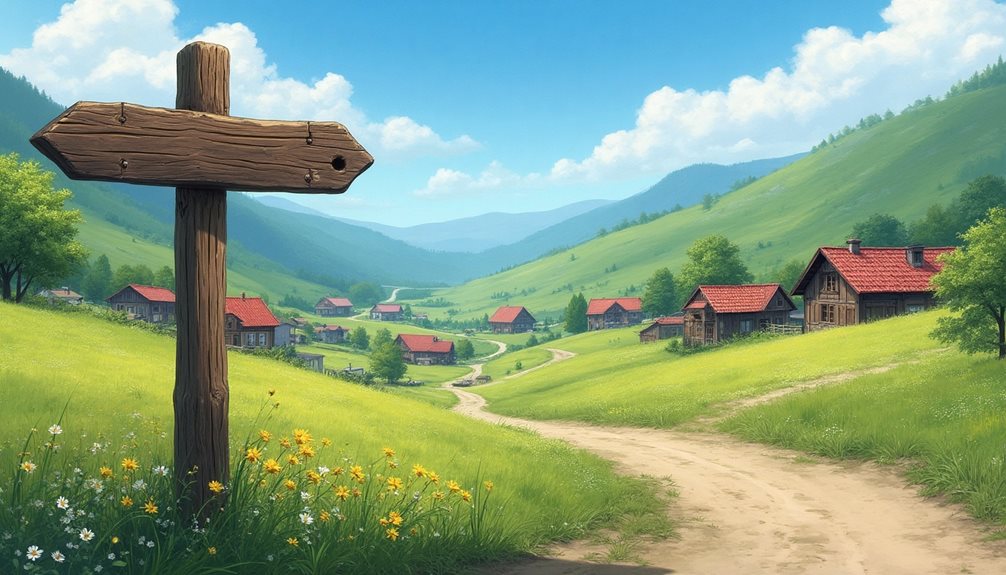As summer begins, June in Russia bursts into life with a series of holidays that reflect the nation’s deep cultural heritage and enduring sense of community. The month opens with International Children’s Day on June 1, setting a joyful and meaningful tone for the weeks ahead.
Introduction
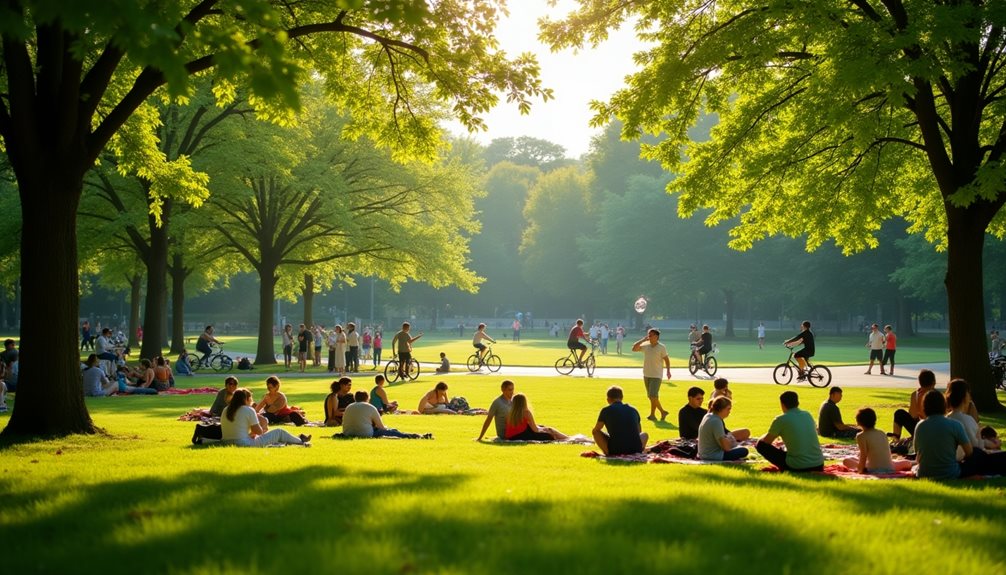
June holidays in Russia are not limited to official ceremonies. The month is also a time for family gatherings, outdoor festivities, and cultural events. Traditional music, dance, and art are showcased at festivals, allowing people of all ages to participate and express their creativity. Seasonal cuisine, featuring fresh produce and classic Russian dishes, brings families and friends together around the table, strengthening bonds and celebrating shared heritage.
A Month of Connection and Optimism
June’s holidays weave together themes of national pride, cultural expression, and community unity. Whether through vibrant public celebrations, intimate family meals, or participation in local traditions, Russians use this month to honor their past, celebrate their present, and inspire hope for the future. The spirit of June in Russia is one of resilience, togetherness, and enduring cultural richness.
June 1: International Children’s Day
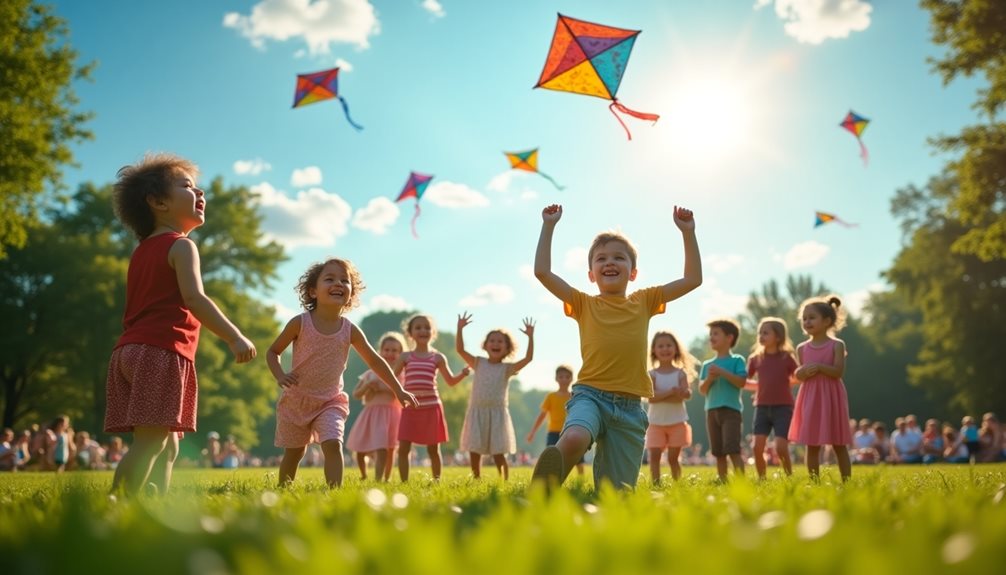
International Children’s Day, celebrated on June 1, is a joyful tribute to childhood, filling cities and towns across Russia with laughter, creativity, and a sense of togetherness. This special day is marked by lively festivities—fairs, concerts, interactive workshops, and colorful performances—designed to spark young imaginations and celebrate the boundless energy of children. From bustling parks in Moscow to vibrant carnivals in Krasnoyarsk, communities unite to create magical experiences for children of all ages, ensuring every child feels valued and included.
The heart of this celebration lies in promoting the happiness and well-being of children, while also raising awareness about their rights and dreams for the future. Schools, cultural institutions, and organizations collaborate on educational programs that nurture creativity, inclusivity, and a spirit of discovery. Theatres, museums, and even zoos open their doors for special events, while local heroes—firefighters, artists, and storytellers—join in to inspire and entertain.
International Children’s Day also highlights the strong commitment of Russian society to support and uplift its youngest citizens. Families from all backgrounds, including orphans and children from large or low-income families, are welcomed into the festivities with free treats, special lunches, and opportunities to enjoy theatre and art. These efforts reflect a nationwide dedication to creating a safe, nurturing environment where every child can thrive.
Across the globe, International Children’s Day is celebrated in diverse and creative ways, but the unifying theme remains a shared promise: to cherish, protect, and empower the next generation. In Russia, this day stands as a shining example of community spirit and optimism, reminding everyone of the joy and hope that children bring to the world. Through vibrant celebrations and ongoing support, the country reaffirms its belief in a bright, inclusive future for all children.
June 6: Pushkin Day
Every year on June 6, Russia celebrates Pushkin Day, also known as Russian Language Day, honoring the birth of Alexander Pushkin—widely regarded as the father of modern Russian literature and the creator of the modern Russian literary language. Pushkin’s influence is so profound that his works unite people of all ages and backgrounds, and his poetry and prose are cherished across generations and translated into dozens of languages.
A Dual Celebration of Language and Culture
June 6 is significant not only as Pushkin’s birthday but also as Russian Language Day, a holiday established by a presidential decree in 2011 to preserve and promote the Russian language as a vital part of national and world heritage. The United Nations also recognizes this date as International Russian Language Day, underscoring the global importance of Russian as one of the UN’s six official languages.
Pushkin Day is marked by a vibrant array of events throughout the country. Major celebrations take place in the Pushkin Mountains and at the poet’s estate in Mikhaylovskoye, where thousands gather for poetry readings, performances, and cultural festivals. Cities across Russia host literary competitions, concerts, exhibitions, and educational programs that highlight Pushkin’s enduring legacy and the richness of the Russian language. Museums, such as the State Pushkin Museum in Moscow, unveil special exhibitions dedicated to his life and works.
Pushkin’s Lasting Impact
Alexander Pushkin’s literary innovations revolutionized Russian literature, making it accessible and resonant for all social classes. His masterpieces, including Eugene Onegin, The Queen of Spades, and numerous fairy tales, are celebrated not only for their artistic merit but also for their role in shaping Russian identity and cultural consciousness. Pushkin’s works are often memorized and quoted by Russians, reflecting his deep integration into everyday life and national memory.
Pushkin Day and Russian Language Day foster a sense of unity and pride, inspiring ongoing dialogue about heritage, creativity, and the importance of language in society. Through poetry readings, storytelling sessions, and community gatherings, Russians of all ages come together to celebrate their literary heritage and ensure that Pushkin’s legacy continues to inspire future generations.
In the words of Pushkin himself, “As long as there is one heart on Earth where I still live, my memory will not die.” On June 6, Russia’s celebration of Pushkin and the Russian language stands as a testament to the enduring power of literature and cultural identity
June 12: Russia Day
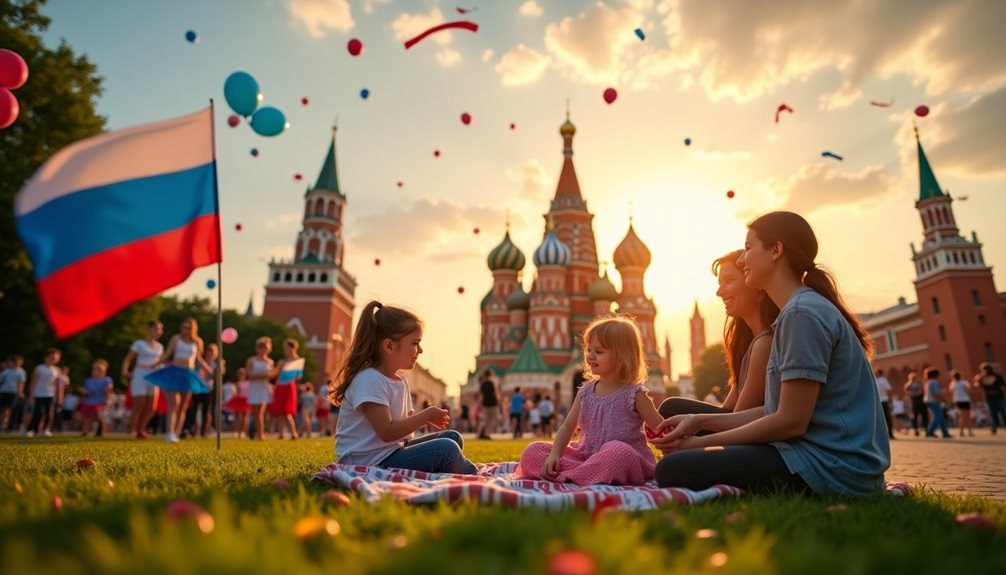
Russia Day, celebrated every year on June 12, stands as one of the most important and uplifting holidays in the country. It commemorates a key moment in modern Russian history—the adoption of the Declaration of Sovereignty of the Russian Federation on June 12, 1991. This declaration marked Russia’s official assertion of its independence and commitment to building a democratic state, following decades as part of the Soviet Union.
Historical Significance
The Declaration of Sovereignty was a bold statement during a time of great change and uncertainty. It was a formal declaration that Russia would govern itself, create its own laws, and protect its citizens’ rights. This step laid the foundation for the creation of the Russian Federation as a sovereign nation. June 12 thus symbolizes freedom, self-determination, and a hopeful new beginning for Russia, setting it on a path toward democracy and modernization.
How Russia Day is Celebrated
Russia Day is a public holiday marked with enthusiasm and pride across the vast country. Cities and towns host grand events that bring people together in celebration:
- Parades and Concerts: Colorful parades showcase traditional costumes, music, and dance from various regions, highlighting Russia’s rich cultural diversity. Open-air concerts feature performances by popular musicians and orchestras, creating a festive atmosphere.
- Fireworks and Festivities: As evening falls, spectacular fireworks light up the sky in many cities, including Moscow and St. Petersburg. These displays symbolize hope, unity, and the bright future of the nation.
- Public Gatherings: Families and friends gather in parks and squares to enjoy picnics, cultural activities, and patriotic speeches. It is a day when citizens proudly wave the Russian flag and sing the national anthem together.
- Recognition of Achievements: The holiday is also an occasion to honor outstanding individuals who have contributed to science, culture, sports, and public service, reflecting the spirit of progress and national pride.
Cultural Importance
Russia Day inspires a strong sense of unity and belonging among people. It reminds Russians of their shared history and values while embracing the diversity that makes the country unique. The holiday encourages reflection on how far Russia has come and fosters optimism for continued growth and cooperation on the global stage.
For those learning about Russian culture and history, Russia Day offers a glimpse into the country’s resilience and aspirations. It is not only a celebration of independence but also an expression of hope for peace, prosperity, and democratic development.
June 22: Day of Remembrance and Sorrow
On June 22, Russia observes the Day of Remembrance and Sorrow, a solemn national commemoration marking the anniversary of Nazi Germany’s invasion of the Soviet Union in 1941—an event that ignited the Great Patriotic War, the Eastern Front of World War II. In the early hours of that day, without warning, German forces launched a massive offensive along the western borders of the USSR, bombarding cities from the Black Sea to the Baltic and beginning one of the most pivotal and devastating chapters in Russian and world history.
A Time for National Reflection
This day stands as a powerful reminder of the immense sacrifices made by the Soviet people. Over 20 million soldiers and civilians lost their lives during the struggle to defend their homeland and ultimately defeat the Nazi regime. The invasion, known as Operation Barbarossa, brought unimaginable hardship, but also showcased extraordinary resilience and unity across the Soviet Union.
Commemoration and Community
Across Russia, the Day of Remembrance and Sorrow is marked by candlelight vigils, moments of silence, and memorial ceremonies. These gatherings, often held in public squares and at war memorials, invite citizens of all ages to reflect on the past, honor those who perished, and share stories of courage and endurance. The act of coming together in remembrance fosters a deep sense of community and national solidarity, as families and communities pass down memories and values from generation to generation.
Legacy and Enduring Spirit
The events of June 22, 1941, fundamentally shaped Russian identity and collective memory. The Great Patriotic War is remembered not only for its staggering losses, but also for the spirit of resistance and hope that emerged in the face of overwhelming adversity. Annual commemorations reinforce the importance of historical memory and ensure that the sacrifices of the past remain a source of inspiration and unity for future generations.
While the Day of Remembrance and Sorrow is a time of mourning, it is also a testament to the enduring strength and resilience of the Russian people. By honoring the memory of those who fought and suffered, Russians reaffirm their commitment to peace, unity, and the preservation of their rich historical heritage. The flicker of candles and the quiet moments of reflection serve as powerful symbols of hope, ensuring that the lessons and legacy of the Great Patriotic War continue to illuminate the path forward.
The holidays celebrated in Russia during June offer much more than moments of festivity; they provide a powerful lens through which to understand the nation’s deep historical roots and cultural identity. These occasions bring people together, fostering a sense of unity and shared purpose that transcends generations. By honoring both joyous achievements and solemn sacrifices, the celebrations underscore the resilience and strength that define the Russian spirit. June, therefore, stands as a testament to the enduring connection between past and present, reminding all of the importance of community, memory, and hope for the future.


